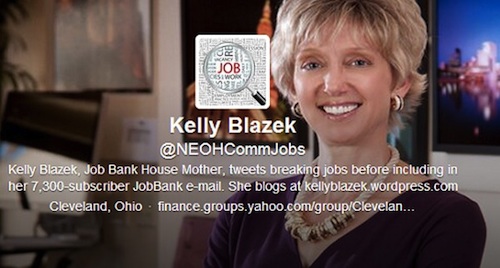If you haven’t heard the story, here’s the basics: Kelly Blazek runs a job bank in Cleveland (OH). Diana Mekota, a millennial, was looking to connect with Blazek — who has a strong LinkedIn presence and ties to some hiring managers in that part of Ohio. She sent an e-mail and an invite to connect on LinkedIn. She got this response back:
“Apparently you have heard that I produce a Job Bank, and decided it would be stunningly helpful for your career prospects if I shared my 960+ LinkedIn connections with you — a total stranger who has nothing to offer me,” Blazek wrote to the John Carroll University graduate. “Your invite to connect is inappropriate, beneficial only to you, and tacky.”
Got it. Here’s the full letter. Admittedly it’s pretty awful.
Part of the reason this is a big story is because she (Blazek) was theoretically adored in the Cleveland hiring community, often referring to herself as “a den mother” of that group and using other family terms like wanting job-seekers to think of themselves as her siblings, etc. Contextually, that all might have been bullshit, yes. Or maybe she just had a bad day.
The fallout? Blazek apologized — ironically, she had been named 2013’s “Communicator of the Year” by a local org — then basically scrubbed herself from the Internet. Story over, and the theme everyone will remember is karma’s a bitch. Indeed. Here are some other lessons, though.
1. While Blazek’s e-mail was very over-the-top (ending with “don’t ever contact me again”), the fact is, stuff like this happens every day in smaller, less-intense form. I can’t tell you how many rejection/dismissive e-mails I’ve gotten in the past 12 months; it has to be over 300. I’ve gotten five or six, from friends of friends, where someone has written “Who are you again?” (This goes back to failures in networking, yes.) Hundreds of times I’ve gotten the “… really busy these next couple of weeks, don’t know if I can help you…” and dozens of times I’ve gotten the “… wait, what exactly do you need/want?” Those are all socially more acceptable, and I would definitely agree Blazek’s e-mail wasn’t that, but it’s all just gradations of the same concept: people don’t want to help you out, because they’re busy with their own shit, and they don’t realize (or understand quickly) the context of your request and who you are. This goes into my next point.
2. I’ve been to a couple of university career centers in the past few years; the major way that millennials are encouraged to network is to use online (since they’re the generation that “understands” online) and reach out to people via LinkedIn, Facebook, whatever it may be. The problem is, the generation that comprises hiring managers right now are super skittish about their e-mails getting out and all that — so they don’t necessarily want to be approached by someone looking to network in a digital medium. This creates a major disconnect. If we’re telling new college graduates “do this, it’s a good strategy,” but in fact the world has more Kelly Blazek(s) than we’d like to admit, then what of the future of networking? It all will come back to who you know, right? Or the value of a strong internship? Basically, if the way people are networking isn’t going to actually get responses, then how does one network anymore?
3. People hate to admit this, but life is pretty much structured around an in-group/out-group bias in many industrialized societies. There are people you know and understand the roles of, and when people outside of those boxes/spheres try to enter, you aren’t that into it. I’m making it simplistic and it’s not, but this is what ultimately often dooms the hiring process. An HR person is told by a hiring manager that he/she needs “A,B,C, X,Y,Z.” The HR manager then looks for those six things, never stopping to re-contextualize around “OK, this person has four and some interesting background here…” and ghosting themselves on LinkedIn so you can’t connect with them directly anyway. Successful companies and relationships are often rooted in legitimate transparency, but there’s nothing about the networking or recruiting process that even remotely mirrors that — instead, you have the Blazeks of the world flaming people for even trying to start a simple dialogue. How can we ever expect to build strong organizations and continue to innovate if we’re basically afraid to let in anyone we don’t already know?
